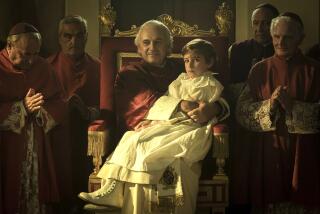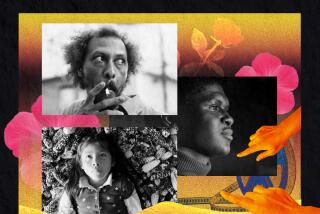Movie review: ‘Le Quattro Volte’ (The Four Lives)’
Take down four or five streetlights, remove a scattering of TV antennas, scrape off the asphalt from twisty narrow streets, and the Calabrian mountainside village of Caulonia would look virtually as it did in medieval times. Caulonia and its environs are the setting for native Calabrian Michelangelo Frammartino’s enthralling “Le Quattro Volte” (The Four Lives), inspired by the region’s great philosopher Pythagoras’ belief in four-fold transmigration, which holds that the soul is passed from human to animal to vegetable to mineral.
Perched between fiction and documentary, “Le Quattro Volte” is above all a beautiful and profound evocation of the eternal cycles of life and nature. Frammartino has made this evocation feel all the more powerful by expressing it, not in the familiar explicit changes of season, but through his discovery of the workings of Pythagoras’ beliefs in the course of everyday life in Caulonia and in its ancient rituals. One of the filmmaker’s key aims is to place man within nature rather at the center of the universe.
In only his second feature, Frammartino has found a fresh and ravishingly poetic and beautiful way to explore the relationship between the spirit, man and nature. In the chaos and instability of today’s world, the timelessness of the Caulonian way of life and its closeness to nature is deeply comforting and reassuring — until one learns that in the 20th century Calabria has been the main source of Italian emigration, with an estimated 2.3 million people leaving the region.
“Le Quattro Volte (The Four Lives).” MPAA rating: Unrated. Running time: 1 hour, 28 minutes. In Italian with English subtitles. At the Nuart, West Los Angeles, through Thursday.
More to Read
The biggest entertainment stories
Get our big stories about Hollywood, film, television, music, arts, culture and more right in your inbox as soon as they publish.
You may occasionally receive promotional content from the Los Angeles Times.










